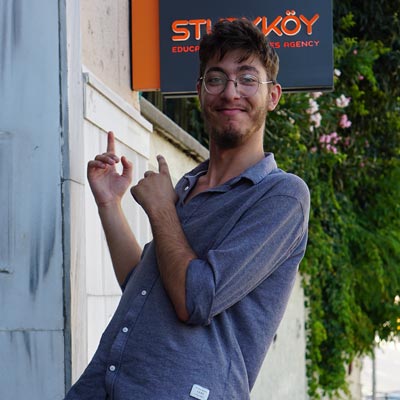
The degree in Radio, Cinema, and Television develops filmmaking skills mixed with practical and theoretical knowledge. This degree gives a critical and creative educational environment for future media professionals. Here are 5 common myths about the program of Radio, Cinema and Television
1- You will watch films all day
This is one of the famous myths of Radio, Cinema and Television. Of course, a student in this program has to watch some films, but it is never for fun. You watch them in order to analyze them in terms of their technical and semiotic aspects There is so much more to a Radio, Cinema and Television degree than this, as watching films is only a very small part of this media degree.
2- Studying in this field is very easy
Like most university degrees, this program is also hard, as it is a combination of assignments to show your practical ability in the field along with a theoretical understanding of the subjects. The assignments are not always easy, and you will also find yourself writing a lot of essays along with learning the philosophy of the various filmic aspects as well.
3- There are no jobs in the industry for this
On the contrary, this field is full of different kinds of jobs, you just need to find your specialty and apply for the job you want. You can either work in broadcasting companies, TV channels, and film production houses, or even work freelance as well. Once you get experience in the field, the jobs offer a good amount of salary as well.
4- Studying a Radio, Cinema and Television degree is only if you want to become an actor
The field is very vast and there are many specializations and departments to choose from. Students can of course go ahead and become actors, or reporters if they like working in front of the camera, but the staff behind the camera is as much as important.
5- The most talented people in this field are able to work in Radio, Cinema and Television
While talent plays a big role in working in this field, whether you are in front of the camera or behind the scenes, hard work goes a long way. There is a big business side to this industry, and students are often taught and shown every aspect of the industry in order to fully understand it. Moreover, networking in this field is very important and can take you to big places.
We hope that this helps you understand the field of Radio, Cinema and Television and the misconceptions and myths of this degree as well.
Want to apply for a program in Radio, Cinema and Television in Turkey? Contact Studykoy so we can guide you. Reach out to us today!
























